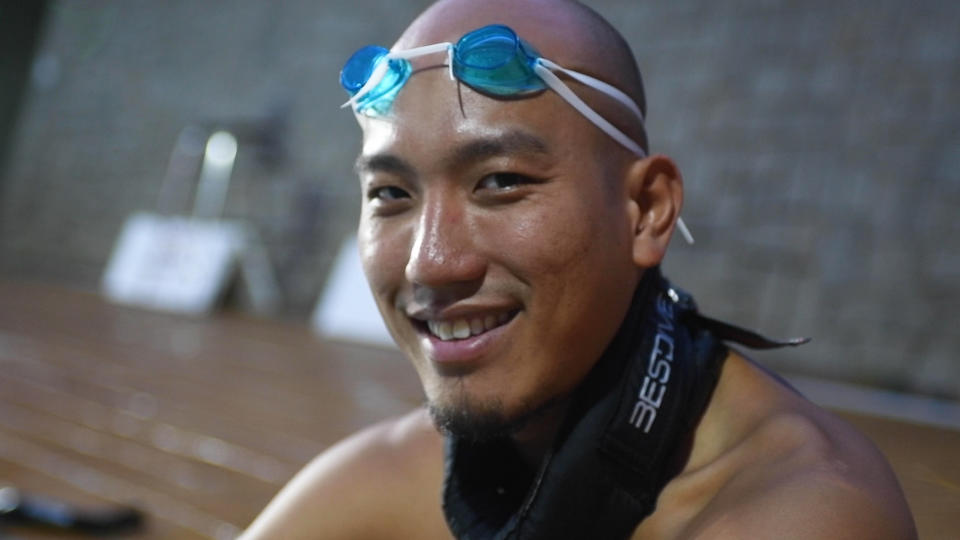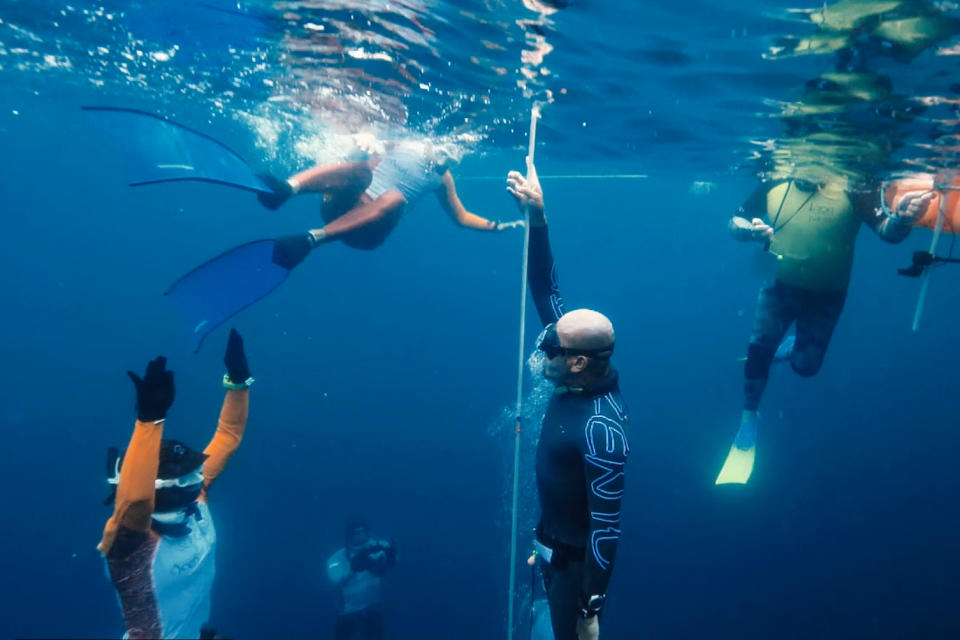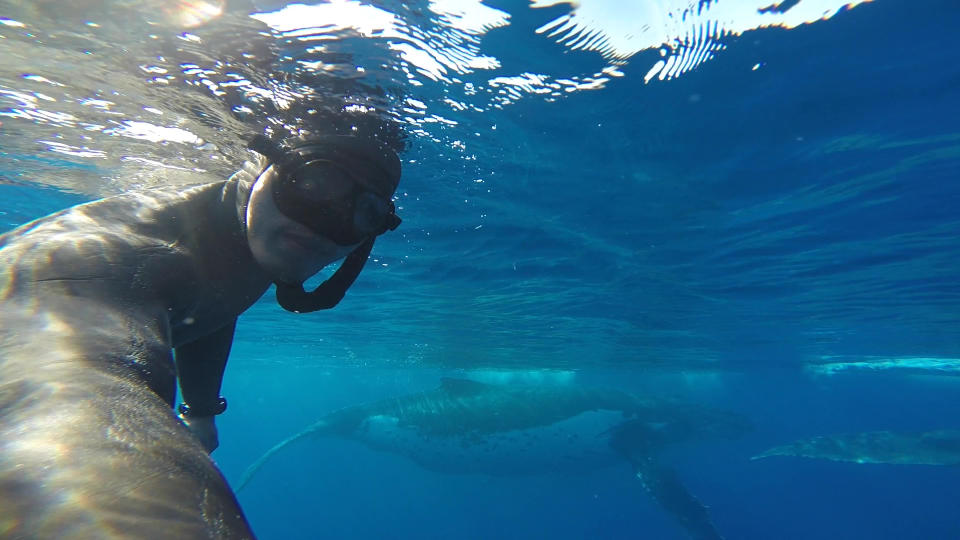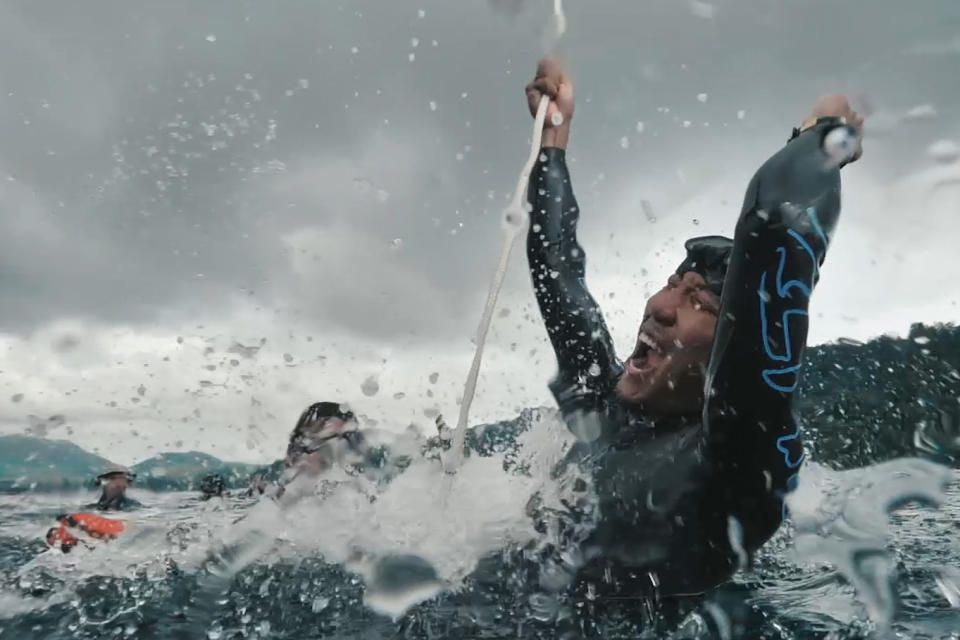Why I Play series: Freediver Jonathan Chong
“Why I Play” is a fortnightly column every Thursday showcasing the stories of people who enjoy playing sports. Want to see your sport featured? Let us know via Facebook or Twitter.
SINGAPORE — Being a 24-time national record holder, Jonathan Chong has taken part in multiple international freediving championships and is a prominent figure in the local freediving community.
The 32-year-old currently holds the national record for the longest static breath hold underwater at around 6 minutes 34 seconds and the constant weight depth record of 74 metres, set at the Sabang International Freediving Competition in 2018.
Not content with just breaking records underwater, he is now working to grow the freediving community through the Singapore Freediving Academy.

Q: How did you get involved in this sport?
A: I started when I was a university student studying in Australia. Back then I was the training officer of the university SCUBA diving club and a group of freedivers wanted to use the university pool through our club. Given my position, I had to be familiar with all the activities of the club, so what better way than to try it myself. I’ve been hooked ever since.
Which muscle groups are most involved in this sport? Which part of your body ache the most after a training session or competition and why?
There are several different disciplines in freediving and the main muscle groups involved depend heavily on the disciplines. Unless an athlete is specialised, he tends to train for all the disciplines due to the nature of the competition point system.
Take the finning events for example, where you have to swim as deep or as far as you can on a single breath, the main muscle group would be the hips and legs. In the free-immersion discipline, where you pull yourself down along a rope as deep as you can and back up again, the arms and latissimus dorsi (aka lats) would be the primary muscle group.
As we don’t have access to deep water, training involves mostly pool work. My training sessions involve focusing on my finning and adapting my energy systems. We need to get used to an absence of oxygen with high levels of carbon dioxide, so after a good session, I feel the ache in my thighs and lungs.

Tell me the biggest misconceptions people have of this sport.
I think the biggest misconceptions about freediving are that it is unsafe and that you need to be extremely fit to get started.
Like any other sport, freediving can be very dangerous if you don’t know what you’re doing. The main issue is that people who are not informed about safe breath-holding have accidents, and these get lumped into freediving, which give it a bad reputation. The reality is that when all safety recommendations are adhered to, the statistics for freediving is much better than other recreational and non-extreme sports.
The other thing that a large part of freediving is very recreational too. Anyone at any fitness level can begin freediving, as long as they’re in good general health (refer to SportSG’s PAR-Q).
In playing this sport, what has been your most memorable experience?
This is a tough question for me. This sport has been the gateway for me to freedive with dolphins, humpback whales and blue whales not possible before. I think the most memorable experience for me would be the static event of my first competition.
I had already pre-planned to attempt a breath-hold time of 4 to 4.5 minutes. During the breath-hold attempt, I could not hear my safety diver and it felt really difficult, feeling like the longest four minutes ever. I had mentally given up, lifted my face out of the water, took my recovery breaths and performed my surface protocol.
It was at this time that I noticed that everyone was standing around at the pool edge and the judges staring down at me. I thought that I had done something really embarrassingly bad when one of the judges showed me his stopwatch reading 6mins 13seconds! As I got out of the pool, everyone congratulated me, shaking hands as I made my way to the dry area. That was also one of my first national records too.

To have that community including the top athletes in the region that I looked up to being so supportive was really memorable for me.
Your most heartbreaking?
Thankfully none yet and I hope it stays that way.
Share an inspiring story you have of a tournament or an experience with teammates that made you love this sport even more.
April 2019. We were doing some freediving training on Dayang Island, a small island in Johor that was closed to scuba divers quite a while back, hence rarely visited. Suddenly, a freediver from another float yelled, “Whale shark!”
I grabbed my camera as the other freedivers started sprinting over. We had a whale of a time interacting with this magnificent creature. On occasions it came so close to me, even bumping into my camera lens.
Everyone was swimming around for what seemed like 10 minutes before it swam off into the deep blue water. For me, it was the realisation that I can experience the ocean and its wonders in no other way possible that makes me love this sport so much more.
Was there a time you felt like walking away from the sport? What made you stay?
Many times – and sometimes I still do. In addition to the daily life, I’m juggling between teaching classes, personalised coaching and running a training squad. Every now and then, I get reminded that my own personal development suffers due to the load, then I have the feeling to drop it all and walk away. I think it’s wanting to grow the sport in Singapore that keeps me going.

Worst injury experienced?
Thankfully the worst I’ve experienced is only a mild trachea strain. It was an interesting and silly experience. It was part of a training camp and the first time I managed to dive down to 50 metres. I was ecstatic at the bottom and wanted to see what the surface would look like from that depth. So I did something that is highly recommend against; I tilted my head to look up. I squeezed my throat and it felt ticklish for days after that.
What life lessons has this sport taught you?
When the urge to breathe kicks in, it can be chaotic mentally as automatic physiological and mental responses flair up – similar to daily stressors in life. Freediving has taught me to stay calm in the eye of this storm through calm breathing and mental relaxation. It has also taught me to keep fighting and results come to those who persevere.
How can people get involved if they’re interested in this sport?
Contact the Singapore Freediving Academy. They have entry-level courses running every month.
Can you tell me in one sentence why you love this sport?
The internal peace I get when I hold my breath and when I look inside, or when I feel my body gliding through the water effortlessly, makes everything go away and this is why I play.



